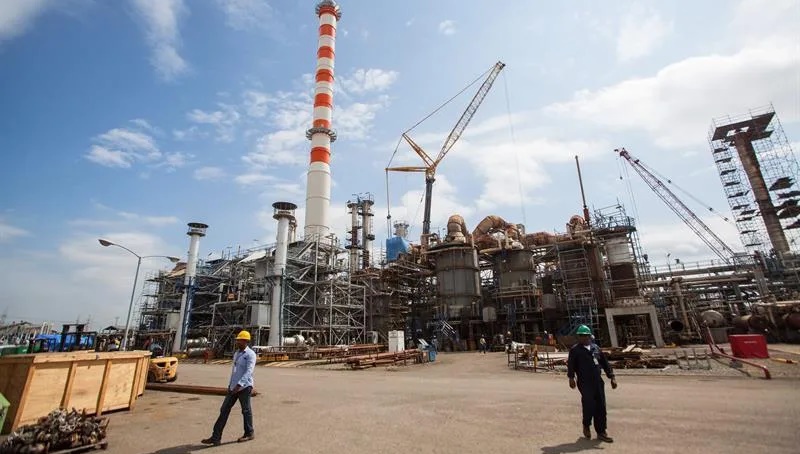On Thursday, the Dominican Republic announced that it had purchased Venezuela’s 49 percent stake in the Dominican oil refinery Refidomsa for a steeply discounted price as part of a debt-for-equity swap. This sale, meant to demonstrate Venezuela’s pledge to honor its debts, will give the Dominican Republic full control of the company.
The Venezuelan state petroleum company (PDVSA) had acquired stock in Refidomsa in 2010, when it paid the Dominican government $131 million for a little less than half the company’s shares. Just 11 years later, after one of the country’s worst economic catastrophes, Venezuela has let go of these shares for 33 percent less than what it initially paid. Through a complicated process of debt swap, involving junk bonds purchased from Grupo Rizek, a Dominican cocoa company, Venezuela sold its shares for just $86 million, $43 million less than what it paid. Not only is this a loss for the Venezuelan treasury, but since the money was used to pay off Venezuelan state debts, the people of Venezuela will not see a dime of the $86 million.
Shortly after the Dominican government’s announcement, Venezuelan minister of industries Tareck El Aissami boasted about the sale. “The Bolivarian Government of Venezuela and PDVSA,” he said in a statement, “have successfully concluded the negotiation of REFIDOMSA, thus honoring the financial commitments acquired with creditors, highlighting our solvency and responsibility, in spite of the criminal blockade by the U.S.” Such statements show that the Maduro government is more interested in honoring its commitments to international capital than to its own people.
While the statement bends over backward to say that the Venezuelan government is willing to “negotiate and compromise with creditors for the purpose of restructuring its debts,” it says nothing about the devastating economic and social catastrophe facing the country. This catastrophe has been caused in large part by the U.S. government’s sanctions and support of the Venezuelan opposition, but it has been exacerbated by the Maduro government’s willingness to continue recognizing the odious foreign debt that was contracted by Chávez’s government. In 2017 that debt was calculated at more than $74 billion.
Instead of allocating those funds to attend to the pressing needs of the people or using it to reinvest in Venezuelan state oil, steel, electricity, and other strategic areas, which would prevent the total collapse of the country, the government is bleeding the people of Venezuela dry in order to pay off foreign capital.
This transaction, the first debt agreement for state assets since the U.S. eased sanctions in July, opens the door to selling the country’s other offshore assets to pay down the foreign debt. And the Maduro government has already been negotiating with international creditors, offering to waive the statutes of limitations on some bonds if the holders agreed not to sue, and offering payments in the form of state assets for much lower than their worth.
Of all of Venezuela’s foreign assets, one of the most targeted is CITGO, the state-owned company operating in the United States. It is fully compromised by debts and loans contracted by the Maduro government, and it could be handed over to creditors as part of compromise negotiations between the government and the opposition.
But it is not only the offshore assets that are being targeted. Also in the crosshairs are national assets, including the more strategic ones that are already heading toward privatization. This is especially true of the oil sector and other sensitive economic areas, which could be auctioned off for bargain basement prices to cover debt payments.
All this shows the Maduro government’s continued surrender to the opposition and the forces of privatization. These sectors see no other way out of the current catastrophe than to turn Venezuela into a giant sweatshop. They are already undertaking this by establishing Special Economic Zones, passing the ill-named “anti-blockade” law, undertaking privatizations, and adopting a set of economic and anti-worker laws. The state is eliminating the workers’ historical conquests and transforming the Venezuelan labor force into the cheapest in the world. The country’s workers will now be an “attractive” target for predatory “investors.”
First published in Spanish on August 20 in La Izquierda Diario.
Translated and revised by James Dennis Hoff











